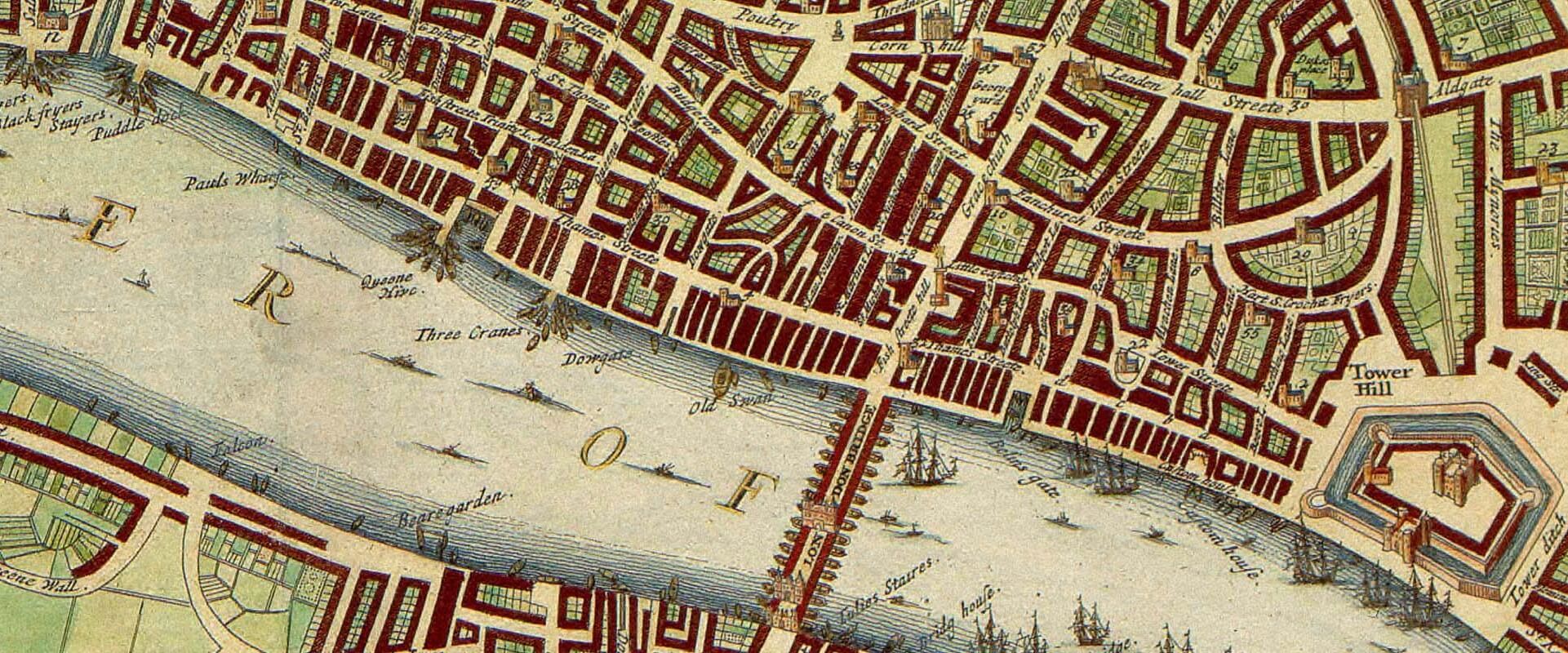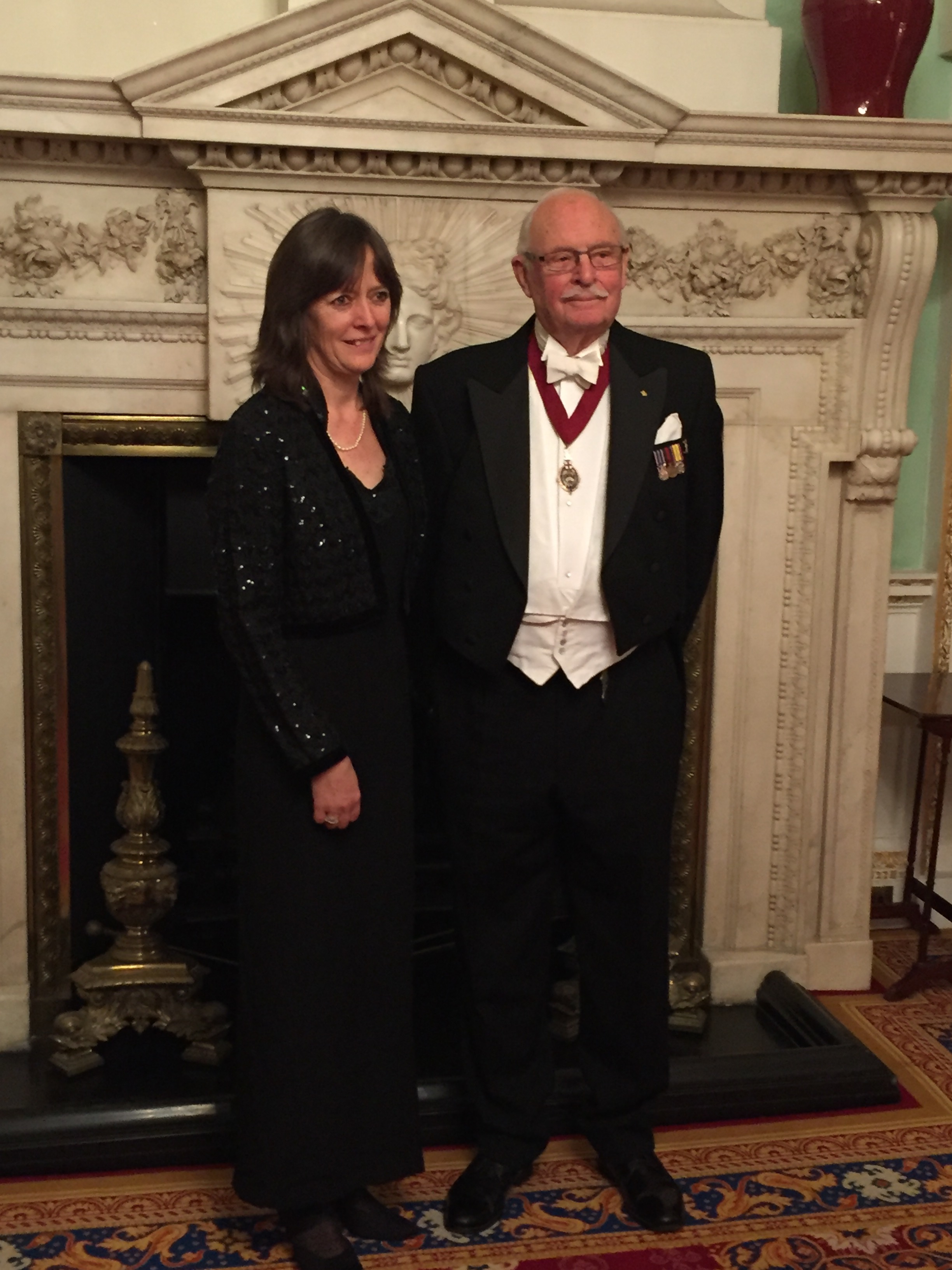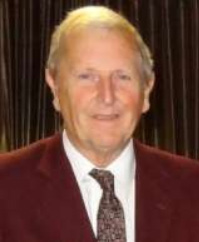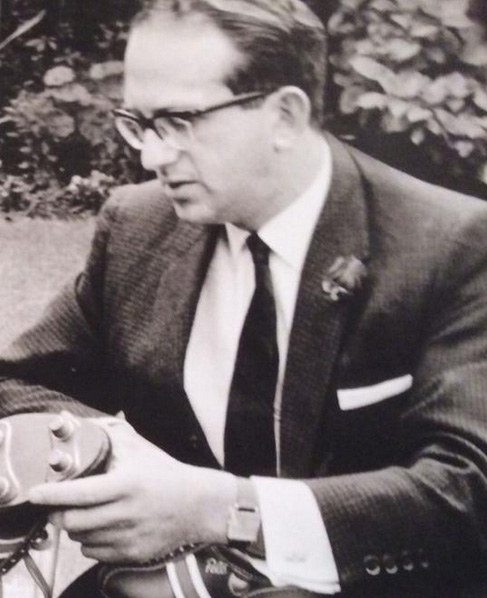
Members' Area
This page is in memory of Pattenmakers of the past.
To add information about a deceased member please complete this form
Nigel John Linstead
05-05-21
Anthony Donald Miller
25-03-21
George Andrews
24-11-20
Brian James
23-05-20
Robert Paul Ziff
06-04-20
George Andrews
24-11-20

- D.O.D:
- 24-11-20
- Profile:
- The recent announcement in the press of the death of Past Master George Andrews referred to him as a “banker, soldier (Glosters), historian, poet, musician, gardener, amateur thespian, wit and a true gentleman”
Some of those descriptions may have piqued a little curiosity in a reader and so I shall pick on a few of these descriptions to provide a flavour of the man.
As a soldier, he was proud of his service with the Gloucestershire regiment as an infantry man, spending time in both Northern Ireland, Jamaica and Belize (British Honduras as it was then). Many tales could be extracted from him as to his antics in such places, both on and off duty, as he had to manage his platoon as corporal, reporting to a Captain Farrar-Hockley in these exotic places. Memorably waiting, in one case, as the part of the small front line for the threatened invasion from Guatemala that never came; the rum industry did well after they were stood down. He kept in touch with his Captain over the years and later, when he was Master, General Farrer Hockley was the principal guest at Mansion House.
Perhaps the army took over from the family that was broken up during the war and that may be why he held it as a great experience and possibly the making of him. Tragically his family life was disrupted by the Plymouth blitz in April 1941 with the destruction of the family house (for the third time) – his father was working all hours as an engineer in the Naval ship yard (and was subsequently sent to Singapore and Malta), his older brother was in the Home Guard and he was evacuated, with his school, to a large requisitioned house near Penzance. The family was split never to live together again. Not long after, the school was bombed and he narrowly escaped with 5 other boys from the rubble. He and the others were declared dead by the radio broadcast by Lord Haw Haw later that week – despite the humour they saw in that broadcast, the bombing did affect him. (As a footnote, our family was on holiday in Cornwall earlier this year and visited the house, knocked on the door and the owner of 36 years was delighted to have some gaps in the house history completed. The wonders of facetime provided him with a walk around of the house and he pointed out exactly the layout as if it were yesterday).
He wrote the story (which I still have) of the Tredarvah bombing for his old school and latterly used to visit a local school every year to talk to the children about life as a schoolboy in the war. His amateur dramatic skills helped animate the stories and bring them to life. In the 1960’s and 70’s, he was a regular star in pantomime (the Grand Vizier, Genie of the Lamp etc). He loved to read the classics and history books, he would read poetry, sometimes in Latin, and would happily quote some Shakespeare, Chaucer or another “great” to emphasise a point or make a relevant statement.
Having left the Army, he made his career in banking being posted rapidly to Rangoon, Calcutta and Nairobi before returning to the UK in the mid 60’s. While as manager of the Calcutta branch, he looked after the tea and jute exporters plus a variety of other customers. One such customer was a lady who was always in financial difficulties as her income came solely from donations – all those donations were used to further her charitable aims and he often would allow an overdraft on preferential terms; strictly against the rules of course, but within the “managers discretion”. It happened that he had been granted permission to return to the UK at that time to get married, and prior to leaving, the little lady came to bestow her wedding gift upon him. It was a blessing upon his marriage by none other than Mother Teresa (now Saint Teresa) and he was immensely proud and honoured by that gift but looking back upon it, it was an act of kindness in return for kindness.
His wit came through in many ways, and he could apply it to adults and children alike – he loved children and entertaining them; the next door neighbours young children being happily “parked” with him, children who came from a few streets away to come and chat with him and of course his own grandchildren. He always had a fund of entertaining stories to tell them or to show them something of interest.
He became a Liveryman in 1971 and supported and loved the City and the Company throughout the rest of his life. He was a long term member of the Royal Society of St George, culminating as President for a number of years and similarly he was long term member of the Candlewick Ward Club becoming chairman in 1982. His wife Brenda was a strong supporter of the Pattenmakers (she seemed to know just about everyone in the Company) and was much looking forward to his Mastership, but sadly, she died in the run up to him becoming Renter Warden. Forever wanting to do the “right thing”, he said he would step down but the Court wouldn’t allow it and his daughter Lindsay became his consort when he became Master. He took an active interest in Livery activities, although latter years saw his attendance drop as he felt he couldn’t participate fully due to an element of frailty. But he was so proud at his last attendance at the 2019 October Court meeting and dinner as his three grandchildren were all clothed as Liverymen.




